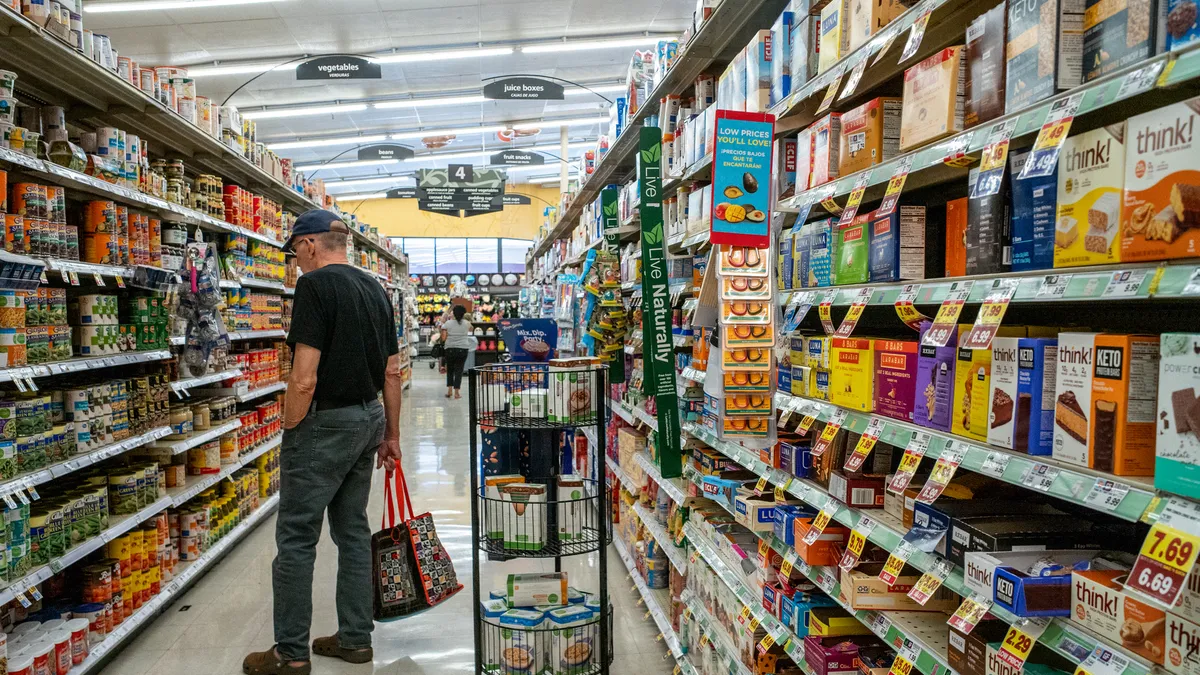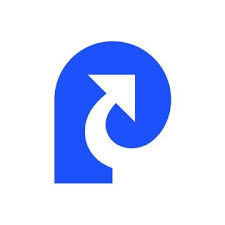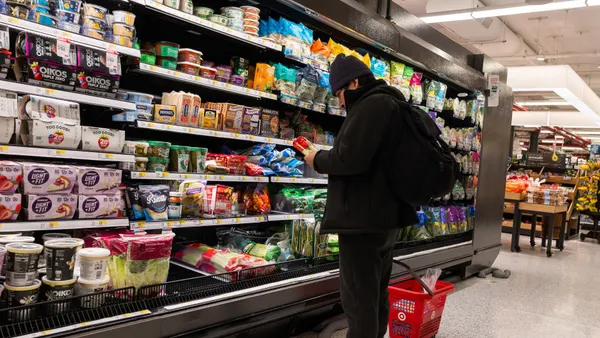Dive Brief:
- Consumer pessimism about the future eased in May after a five-month gain amid a cooling in the U.S.-China tariff war, the Conference Board said Tuesday
- The Consumer Confidence Index rose by 12.3 points this month to 98, the Conference Board said. The Expectations Index — gauging consumers’ short-term view about income and the outlook for business and the labor market — also surged but remained below the level that usually signals sustained economic growth rather than a coming recession.
- “The rebound was already visible before the May 12 U.S.-China trade deal but gained momentum afterwards,” Stephanie Guichard, senior economist for global Indicators at the Conference Board, said in a statement, referring to a 90-day reduction in U.S. levies on China imports to 30% from 145%. Roughly half of survey results were gathered before that date.
Dive Insight:
The share of consumers expecting a recession over the next 12 months fell in May, the Conference Board said, aligning with a markdown on the odds of a downturn among economists.
For example, Goldman Sachs recently trimmed the probability of a recession to 35% from 45% while citing reduced tensions between the U.S. and its trade partners.
Consumer confidence rose among all age and income groups, and across political affiliations, the Conference Board said, noting the biggest gains among Republicans.
Expectations for average inflation during the next 12 months fell to 6.5% from 7% in April, the Conference Board said.
President Donald Trump on Sunday withdrew a threat to impose 50% tariffs on goods from the EU on June 1, giving the 27-country bloc until July 9 to negotiate a trade agreement.
Consumers may be too optimistic about the outlook for price pressures, according to economists concerned that import levies on goods from virtually all U.S. trade partners will spur inflation.
"Consumer confidence may have soared and Americans have reason to be happy given the rollback in tariffs, especially with China,” Robert Frick, corporate economist with Navy Federal Credit Union, said in an email.
“But when prices start rising from existing tariffs in a month or two, it will be a sobering reminder that a new inflation fight has just begun," he said.
Indeed, many consumers voiced concerns that tariffs will stoke inflation and slow economic growth, the Conference Board said. At the same time, “there were also some mentions of easing inflation and lower gas prices.”
Forty-four percent of respondents expect stock prices to increase during the next 12 months compared with 37.6% in April, Guichard added. “This was one of the survey questions with the strongest improvement after the May 12 trade deal.”
While consumer confidence jumped this month, a tariff-induced rise in the purchase of goods plunged after March.
Factory orders sank 6.3% in April after rising nearly 8% the prior month as companies snapped up goods before import levies pushed up prices, the Commerce Department said Tuesday.
Correction: In a previous version of this article, the day for release of the Conference Board survey results was reported incorrectly. The release day was Tuesday.















